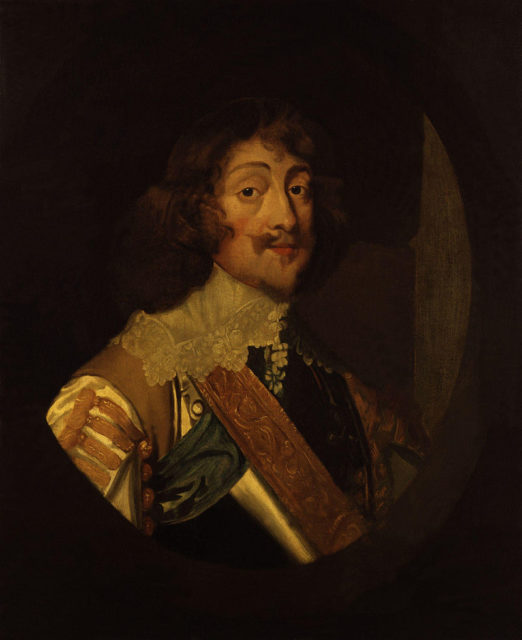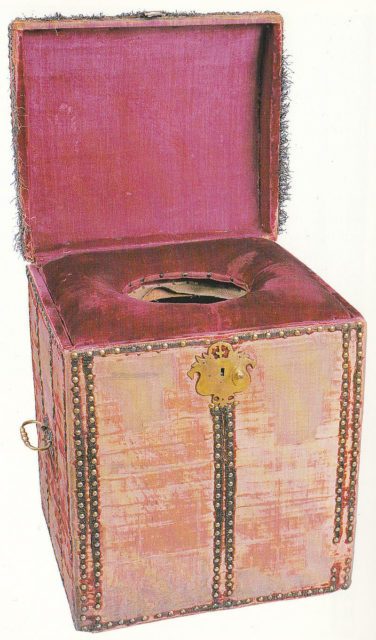People tend to be drawn to power; that was as true in previous centuries as it is in the present. Men and women alike have maneuvered themselves into all sorts of positions in order to gain the ear of the person at the top.
During the Tudor Era, the best-placed position for having the king’s ear also meant having responsibility for the king’s rear end.
One of the most sought-after positions in the courts of Henry VII and Henry VIII was that of “Groom of the Stool”. The full title of the position was Groom of the King’s Close Stool, and if you think that sounds like it had to do with toileting needs, you’d be right.

The king’s toilet was referred to as a “stool”, according to The Tudor Society, and the role of the Groom of the Stool was to supply water, towels, and a basin for when the king had completed his business. It was also the groom’s responsibility to monitor the condition of the king’s bowel movements as a means of doing an ongoing assessment of the king’s health.
There’s some debate over whether the Groom’s duties would extend to wiping the royal rear, but there hasn’t ever been evidence one way or the other indicating that was part of the duty, but still…

You might be asking yourself who would find this a desirable job, given its nature, and that’s a reasonable question. The fact is that the position was highly sought after and carried with it many privileges. It was usually awarded to the sons of the nobility, according to Historic UK.
Groom of the Stool was the highest position in the king’s “Privy Chamber”, the innermost, private room of his apartments, where he had some privacy and relaxation. When the role was first created for Henry VII, it centered on taking care of the king’s personal needs, but the role slowly expanded until its scope became much larger.
The Privy Chamber was maintained by a series of men whose job was to tend to all aspects of the kings most personal life. By Henry VIII’s reign, the Groom oversaw all the other men who had roles in the Privy Chamber. In addition to his duties around the king’s toileting, he also helped the king dress and undress, keep track of the Privy Purse for the King’s personal money, and maintain the safety and security of the inner chambers. They even became more like personal secretaries.

The Groom went where the King went and was always housed nearby. The position was well paid and included perks such as receiving the King’s old clothes and even furniture. If the idea of used clothing doesn’t sound like much of a benefit today, consider that the King’s clothing would always be of the finest materials, such as silk and velvet, and was often ornamented with gold or silver thread and even jewels.
While the position didn’t hold any official, inherent political power, and the groom didn’t sit in on council meetings and the like, there was still a lot of subtler influence at the Groom’s command. In many respects, he was as close to the monarch as it was possible to be, and he had access to him without many of the distractions that went along the more public aspects of royal life.

Petitioners would often approach the groom asking for messages to be passed on to the King or to try to find employment for a family member within the Privy Chamber.
Members of the court went out of their way to be on good terms with the Groom, who had the ability to express his opinions about people to the King in private, which could have long-reaching impacts on their lives, beneficial or not.
He also was often in a position to know the King’s private thoughts and personal secrets.
Read another story from us: Legendary Fart Battles in the Samurai Era
When Elizabeth I came to the throne, it became inappropriate to have a male serving a Queen in such an intimate capacity, especially one who was unmarried. So the position was dispensed with, and replaced with a new title, Lady of the Bedchamber, who essentially performed the same functions. Again we’ll have to use our imaginations…
